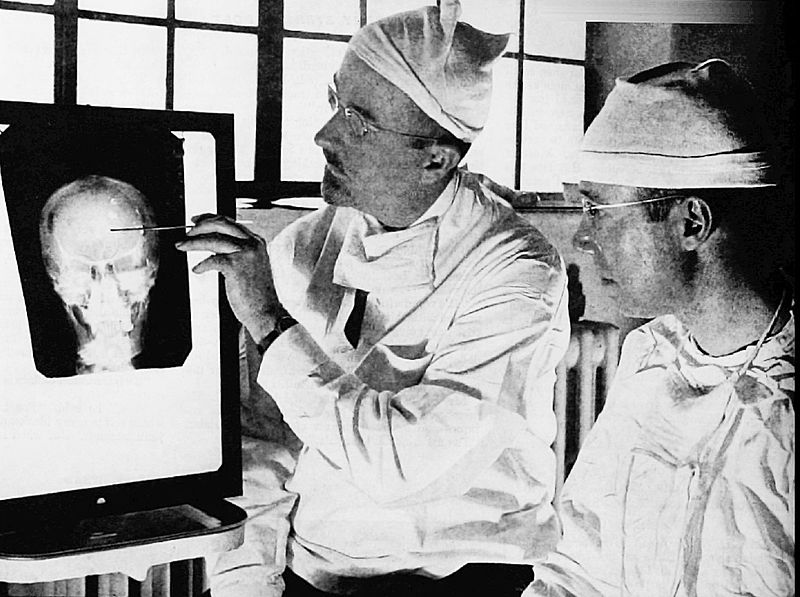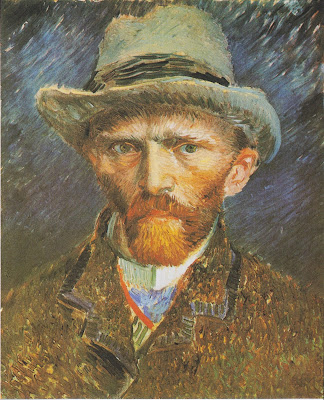This incident happened some months ago, when I saw a rare post from a Facebook friend whose posts never seemed to show up in my feed (and only about 10 per cent of my “friends” ever appear there. It's always the same old. The reason? Facebook assumes that, because they're in my feed a lot, it’s what I want, so gives me “more of the same”).
In typical Facebook fashion, this is someone I know of, but don’t know personally, and with whom I have over a hundred Facebook friends in common. In part due to his platform as an edgy "alternative" arts journalist, he has been quite open about his lifelong struggles with mental illness, believing (and I truly agree with this) that this topic needs to be hauled out of the shadows where it never belonged in the first place. But something was very amiss with his post.
I went on his page to see what was going on. The posts were strange and kind of scary. He used the word “manic” several times, in a lot of different connotations (including some crude sexual references the likes of which I could not find anywhere else on his page). There were veiled and not-so-veiled references to self-destruction and violent death. This made me very uneasy, but far worse than that were the comments: the dozens of “LOLs” and “right ons” and even “awesomes”, as if his readers were finding all of it hugely entertaining.
In spite of or maybe because of the work he had done illuminating mental health issues, people apparently thought this was some kind of exuberant prank and were egging him on. Meantime, hints of suicide kept showing through. He mentioned looking down the seventeen stories of his apartment building and imagined “impaling myself on the maples below”. More LOL’s, more “right ons”, dozens of idiot emojis - and (worst of all) “Hey, we’ve all been there” (which we HAVEN’T. Nothing is more bogus and potentially dangerous as empty, false “empathy”, pretending to know what it feels like when you absolutely do NOT. It’s like saying you know about cancer from a mosquito bite.)
The posts escalated, becoming more florid and making less sense, along with photos that were increasingly alarming, until someone – a family member, I believe - posted with great urgency that anyone who had seen him should contact the family immediately. They didn’t know where he was.
Most of the comments by now expressed concern, but there were still a few dimwitted remarks (“Hey, it's all good! You’re Canada’s gonzo journalist, mate!”) People who compare someone to Hunter S. Thomson should be reminded of how his life ended, with a single gunshot wound to the head.
When the family finally announced they had called the police, most were relieved, but others still went on and on about “oh, no, you didn’t call the COPS on him!” The trouble with unburying mental illness from its airless crypt is that you uproot a whole array of primitive, ignorant, even goddamn stupid attitudes that go with it, such as denial and misperception and totally inappropriate “seeing the funny side” when it really isn’t too damn funny at all. I'm not against it, but humor about such a subject only comes in retrospect. Perspective equals time plus distance. Can you make jokes about heart disease when you’re flat on your back and fighting for your life?
There was a brief update from his brother about how grateful he was to the police for getting him safely to the hospital. This seemed to shut up the idiot Greek chorus for a while. "Police" is such a knee-jerk term, especially to jerks who don't think. The police are trained to deal with people in all kinds of distress, for all kinds of reasons, and for the most part, they do their job very well. But people still use terms that reflect very dated, primitive thinking: "they dragged him off", "they threw him in a mental hospital", etc., when very likely no person was "thrown" at all. Some still use that most horrendous and dehumanizing of terms: "they put him away". It's one of those holdovers from another century (or two) that deserves to disappear.
I see two kinds of posts on FB about the “hot topic” of mental health (the term seemingly replacing “mental illness”, which assumed you could never be well): boilerplate posts as ready-made as a microwave dinner (“Most of you won’t even bother to read this far” and “copy and paste this message, DON’T share, just to show you care!”, emoji, emoji, emoji). I always have the vague uneasy feeling that someone is making money off these things. To alleviate that vague guilt that hangs around most of us these days, people WILL copy and paste the thing, hoping they've done their bit to "raise awareness" and can just get on with their day.
The other approach is much like the “cancer awareness” thing where it seems like a bunch of cheerleaders waving pink pom-poms. In this case, God only knows where your donations end up. I’m not saying we shouldn’t address the subject - quite the opposite. But let’s really talk, talk about things that are real and painful, not spout easy platitudes and rah-rah for the team. Believe it or not, there is a time when "being positive" is the last thing you need to do.
I think depression and PTSD have largely come out of the closet, which is a start, though celebrities still “admit” they suffered from depression years and years ago (NEVER recently – that’s still too great a risk). PTSD is associated with first responders, military heroes, sometimes cops, but that’s about it. If you were sexually abused as a child and can barely function, that’s not it, it has to be called something else. Due to media emphasis and a certain level of social discomfort, PTSD has been largely claimed by heroic figures running into burning buildings. People insist they’re even more heroic for the tremendously risky act of seeking help.
I won't say much about myself because it is too excruciating, except to say that when I "disclosed" to a literary agent that I have bipolar disorder, she emailed me back with two words: "You're brave." It struck me as a remark along the lines of, "I wish I had the nerve to wear that dress." The "brave" thing was weird, because I could have bipolar disorder and be the biggest chicken on the block. Having it doesn't automatically make you "brave". So I guess she thought I was brave to have the nerve to tell her such a thing. I was left with the feeling that I had done something that had made her profoundly uncomfortable.
I like to say, and often people don’t have a clue what I mean, that when it comes to mental illness, we haven’t had our Stonewall yet. Every day, people bandy about terms like “whack job” and “nut bar”, expressing casual contempt for people who, like my Facebook friend, COULD NOT HELP his behaviour, because that is the nature of the illness. The mentally ill are the very last group of people in our culture whom you can vilify, mock and dismiss with no penalties, because no one even notices you’re doing it. We all say those things, don’t we? Why is it such a problem? It doesn’t really mean anything. Why are you so damned oversensitive?
I lost a beloved brother, the one confidante and support I had in a childhood lived in an emotional war zone, to the damaging effects of schizophrenia, back when all they could do for people was drug them senseless to keep them from “acting out”. And yes, sometimes we lost track of him, didn’t know where he was and had to call the police, and it was horrific. Then when the worst happened, my mother-in-law said to me in a terrible double-entendre, “at least now you know where he is.”
Why does it have to get that bad? It doesn't. If the health care system were more complete, if there were enough beds, if people would drop their mockery and horror and act human, as human as they probably could be if they tried - but I digress. My point is, what you say reflects what you think. It displays your understanding or your ignorance, not just to your Facebook friends but to the world.
Sometimes the less you say the better. Just keep it simple. Take care. I love you. Be well.















































